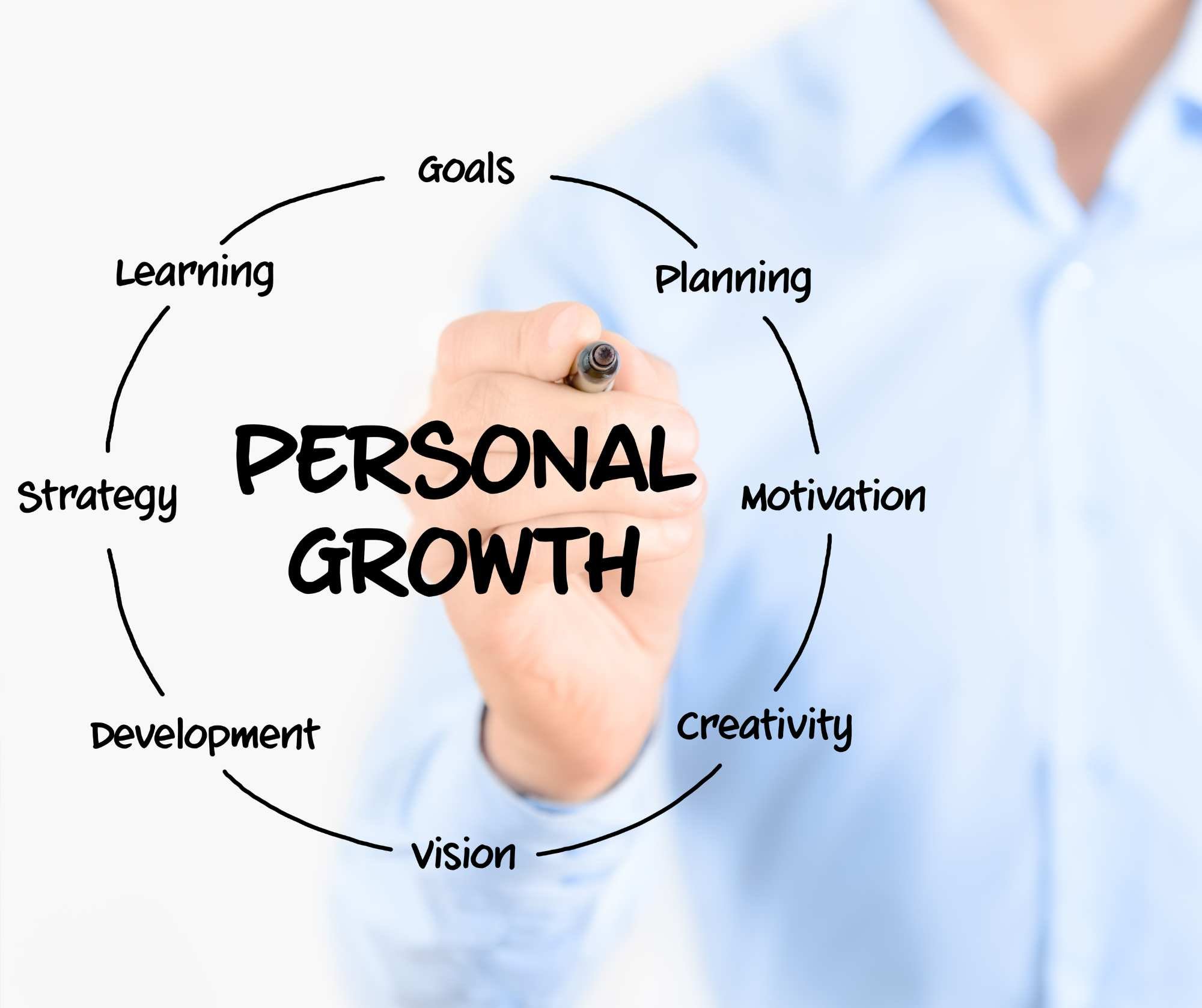How to Improve Executive Function in ADHD Adults
Attention deficit hyperactivity disorder (ADHD) is a common neurodevelopmental condition that can impact focus, concentration, and activity levels. For adults with ADHD, managing daily tasks can be particularly challenging due to difficulties with executive functioning.
Executive functioning skills encompass crucial mental abilities like planning, working memory, organizing, and time management. This guide explores practical strategies to improve these skills in adults with ADHD. From cognitive-behavioral techniques to lifestyle adjustments, we'll provide valuable insights and support to help you in your daily life and enhance your overall well-being.
Key Takeaways:
Executive function encompasses crucial skills like planning, organization, and time management, which can be challenging for adults with ADHD. ADHD adults encounter difficulties in planning, focus, time management, and impulse control, affecting various aspects of life.
Cognitive-behavioral techniques, environmental modifications, and lifestyle adjustments offer practical solutions for enhancing executive function skills.
Implementing task prioritization, utilizing technology tools, and advocating for accommodations can improve executive function at work. Establishing routines, setting SMART goals, and building resilience through coping mechanisms are key to personal growth.
Therapy, coaching, and community support are crucial in managing executive function challenges effectively.
Understanding Executive Function in ADHD
Strategies for Improving Executive Function Skills
Personal Development and Executive Function
Frequently Asked Questions About How to Improve Executive Function in ADHD Adults
How Connected Speech Pathology Can Help with Executive Function Issues
Understanding Executive Function in ADHD
Attention deficit hyperactivity disorder (ADHD) is often associated with challenges in focus and concentration. However, a lesser-known but crucial aspect of ADHD is its impact on executive functions.
Executive function refers to mental skills that help us manage our thoughts, emotions, and actions to achieve goals. These skills include:
Planning and Prioritization: Setting goals, breaking down tasks into manageable steps, and determining their importance.
Organization: Keeping track of thoughts, materials, and belongings is essential for efficient functioning.
Initiation and Completion: Getting started and completing tasks requires focus and sustained effort.
Focus and Attention: The ability to filter out distractions and maintain concentration on a chosen task is crucial.
Time Management: Estimating time accurately and allocating it effectively.
Emotional Regulation: Managing emotions appropriately and responding calmly to situations is a critical component of executive function.
Individuals with ADHD often experience challenges with one or more aspects of executive function as if struggling to coordinate all the sections. This can lead to difficulties in various areas of life.
Common Challenges Faced by ADHD Adults in Executive Functioning
Adults with ADHD may face specific challenges due to executive dysfunction, such as:
Planning and Organization: Large projects can feel overwhelming, and breaking them down into steps can be challenging. Disorganization can lead to misplaced belongings and missed deadlines.
Focus and Attention: Distractions are ever-present, making it hard to concentrate on tasks. Hyperfocus can also be an issue, leading to a tendency to get stuck on specific details and neglect other responsibilities.
Time Management: Time perception can be skewed, leading to procrastination or feeling constantly rushed.
Impulse Control: Acting impulsively can lead to rash decisions, blurting things out, or struggling to resist immediate gratification.
Understanding these challenges is the first step toward effectively managing ADHD. By implementing strategies and seeking support, adults with ADHD can strengthen their executive functions and achieve their goals.
Strategies for Improving Executive Function Skills
Executive function is a complex set of skills that govern our ability to manage our daily lives. Fortunately, several executive function strategies can help improve executive functioning. Here, we'll discuss approaches across three categories: Cognitive-Behavioral Techniques, Environmental Modifications, and Lifestyle Adjustments.
Cognitive-Behavioral Techniques
These techniques target how you think and behave, aiming to improve your self-regulation and approach to tasks.
Cognitive Restructuring
This involves identifying and challenging negative thought patterns that hinder motivation and focus. Reframing negative thoughts into more positive and realistic ones can improve emotional regulation and help you approach tasks more confidently.
Behavioral Activation
This strategy involves scheduling pleasurable activities into your daily routine. Engaging in enjoyable activities can boost motivation, improve mood, and indirectly enhance focus and concentration. When you feel good, you're more likely to tackle challenges with a positive attitude.
Mindfulness Practices
Mindfulness exercises like meditation can help improve one's awareness of the present moment and better train brain function to resist distractions. They can also promote emotional control and stress management, both of which can have a positive impact on executive function. These exercises can be as simple as focusing on one's breath for a few minutes daily.
Environmental Modifications
Optimizing your environment can significantly improve your ability to utilize your executive function skills.
Organizational Systems
Develop organizational strategies that work for you. This could involve using planners, to-do lists, color-coded calendars, or labeled bins. By creating structures to keep track of tasks and belongings, you can reduce mental clutter and free up cognitive resources for other tasks.
Time Management Strategies
Employ techniques like time blocking, creating to-do lists with deadlines, and using timers to manage your time more effectively. Knowing how much time you realistically have for tasks can help you prioritize and avoid procrastination.
Minimizing Distractions
Find ways to minimize distractions in your workspace. This could involve silencing phone notifications, noise-canceling headphones, or working in a quiet environment. Reducing distractions allows you to focus your attention and energy on the task.
Lifestyle Adjustments
Taking care of your overall well-being can significantly enhance your executive function skills.
Sleep Hygiene
Establishing a regular sleep schedule and good sleep hygiene habits can significantly improve focus, concentration, and overall cognitive function. Well-rested people are better equipped to handle complex tasks and regulate their emotions.
Exercise and Nutrition
Regular physical activity and a balanced diet can boost energy levels, improve mood, and enhance cognitive skills. Physical exercise also helps reduce stress hormones and improve blood flow to the brain, both beneficial for executive function.
Stress Management Techniques
Chronic stress can have a detrimental impact on executive function. Techniques like relaxation exercises, deep breathing, and yoga can help manage stress levels and improve overall well-being. By managing stress effectively, you can improve your focus, clarity, and ability to make sound decisions.
Remember, consistency is key! By implementing these strategies and tailoring them to your specific needs, you can strengthen your executive function skills and experience greater control over your daily life.
Executive Dysfunction Treatment
Check out our blog on executive dysfunction treatment for more information!
Work and Executive Function
Executive function skills are crucial for success in the workplace. They allow you to manage your workload, prioritize tasks, meet deadlines, and collaborate effectively with colleagues. However, individuals with ADHD or those with executive function disorder may find the workplace environment particularly demanding.
Strategies for Improving Executive Function in the Workplace
Here are some specific strategies that can be applied in a work setting:
1. Task Chunking and Prioritization
Break down large projects into smaller, more manageable tasks. Use prioritization techniques, such as the Eisenhower Matrix, to determine what needs to be done first and what can be delegated or scheduled for later.
2. Utilizing Technology Tools
Take advantage of technology tools that can help you develop strong executive functioning skills. Calendar apps with reminders, project management software, and note-taking apps can all help you stay organized and on track.
3. Communication and Advocacy
Open communication with your manager and colleagues is vital. Explain your strengths and challenges related to executive function. Discuss strategies that can support you in improved executive functioning, such as flexible deadlines or adjusted workloads.
Coping with Executive Function Challenges at Work
Here are some ways to deal with challenges related to executive function in the workplace:
Building a Supportive Work Environment
Seek a work environment that understands and supports individual differences. Discuss your needs with your manager and find potential accommodations.
Seeking Accommodations
The Americans with Disabilities Act (ADA) protects qualified individuals with disabilities from discrimination in the workplace. Reasonable accommodations for executive function deficits could include extended deadlines, quiet workspaces, or permission to use assistive technology.
Professional Development and Skill Building
Many resources are available to help strengthen executive functioning skills. Consider attending workshops, researching online courses, or working with a coach who specializes in executive function.
Implementing these strategies and advocating for your needs can help you create a work environment that fosters your strengths and allows you to thrive by leveraging your unique talents and skills.
Personal Development and Executive Function
Executive function skills are essential for personal growth and self-improvement. This section will discuss strategies for strengthening these skills in daily life and building resilience to cope with challenges. We'll also check out resources for further support and professional assistance.
Strategies for Self-Improvement
Here are some strategies you can implement to strengthen your executive function skills in your personal life:
1. Goal Setting and Monitoring Progress
Set SMART goals (Specific, Measurable, Achievable, Relevant, and Time-bound) to provide direction and motivation. Monitor your progress regularly and adjust your approach as needed. Celebrate your achievements, no matter how small, to stay motivated.
2. Building Habits and Routines
Establish routines for daily tasks, such as waking up, sleeping, and meal times. Consistent routines provide structure and predictability, which can help you manage time and stay focused.
3. Self-Reflection and Learning from Mistakes
Regularly reflect on your successes and challenges. Identify areas where your executive function could be improved and develop strategies to address them. Don't be afraid to make mistakes; view them as learning growth opportunities.
Building Resilience and Coping Strategies
Developing resilience and effective coping mechanisms is essential to deal with the challenges related to executive function.
Developing Coping Mechanisms
Identify healthy coping mechanisms that work for you, such as exercise, spending time in nature, listening to calming music, or practicing mindfulness exercises. These strategies can help you manage stress and maintain focus.
Building a Support Network
Surround yourself with supportive people who understand your challenges and can offer encouragement and assistance. A robust support system can be a source of strength and motivation.
Embracing a Growth Mindset
View challenges as opportunities for learning and growth. Believe that your skills and abilities can be developed with effort and persistence. A growth mindset fosters resilience and a positive outlook.
Professional Assistance
Therapy and Counseling
A therapist or counselor can teach you valuable strategies for managing executive function challenges. They can also help you develop coping mechanisms for stress and anxiety.
Coaching for Executive Function
Executive function coaches can provide personalized support and guidance to individuals who want to improve their organizational skills, time management, and focus.
Community Support and Advocacy Groups
Connecting with others who understand your challenges can be valuable support and encouragement.
Online Forums and Support Groups
Online communities provide a platform to connect with others who share similar experiences. You can share tips, ask questions, and find encouragement from others.
ADHD Awareness and Advocacy Organizations
Organizations such as CHADD (Children and Adults with Attention-Deficit/Hyperactivity Disorder) offer resources, support groups, and educational materials related to ADHD and executive function.
Frequently Asked Questions About How to Improve Executive Function in ADHD Adults
1. What is a strong work ethic for ADHD?
A strong work ethic for someone with ADHD might look different from a traditional one. It may involve:
Breaking down large tasks into manageable steps
Utilizing organizational tools and technology
Working in short bursts with planned breaks
Asking for help and accommodations when needed
Focusing on progress and celebrating small wins
2. What careers can people with ADHD do?
People with ADHD can excel in a wide range of careers. Their creativity, problem-solving skills, and outgoing personalities can be assets in many fields. Here are some examples:
Entrepreneurs
Artists and Designers
Sales and Marketing Professionals
Actors and Performers
IT Professionals
Teachers (with strong organizational strategies)
3. Can people with ADHD become good leaders?
Absolutely! People with ADHD can be strong leaders due to their enthusiasm, out-of-the-box thinking, and ability to connect with people. However, effective leadership also requires strong executive function skills. By utilizing strategies and building a supportive team, individuals with ADHD can thrive in leadership roles.
4. Does ADHD medication help with executive dysfunction in adults?
ADHD medication can be a helpful tool for managing executive dysfunction symptoms in adults. Stimulant medications can enhance focus, attention, and impulse control. Non-stimulant medications can also help manage hyperactivity and enhance emotional regulation.
It's important to note that medication is not a cure for ADHD. Still, it can be a valuable part of a comprehensive treatment plan that includes therapy and skill-building strategies. Consulting with a healthcare professional is essential to determine if medication is proper.
How Connected Speech Pathology Can Help with Executive Function Issues
Connected Speech Pathology offers invaluable assistance in addressing executive function issues through specialized therapeutic interventions. By focusing on language and communication skills, Connected Speech Pathology can help individuals with ADHD and assess executive function strengths. Through tailored exercises and strategies, therapists can target specific areas of difficulty, such as planning, organization, and time management, helping individuals develop practical skills to cope with daily tasks more effectively.
One notable advantage of Connected Speech Pathology is its ability to deliver services remotely. Even before the widespread adoption of remote services, Connected Speech Pathology successfully provided therapy sessions through telepractice for years. This means that individuals with ADHD can access expert support and guidance from the comfort of their own homes, eliminating barriers such as transportation issues and geographical distance.
Additionally, remote therapy sessions allow for greater flexibility in scheduling and can accommodate busy lifestyles, making it easier for individuals to prioritize their executive function development.
Despite the remote nature of Connected Speech Pathology services, the results are consistently excellent. Therapists utilize innovative techniques and technology to create engaging and effective sessions tailored to each individual's needs. Through regular sessions and ongoing support, individuals with ADHD can experience significant improvements in their executive function skills, ultimately leading to enhanced daily functioning and overall well-being.
Summary
This blog explores strategies for improving executive function in adults with ADHD. It discusses common challenges, offers solutions in three categories (Cognitive-Behavioral Techniques, Environmental Modifications, and Lifestyle Adjustments), and provides tips for managing executive function at work and personal development.
Additionally, it highlights the effectiveness of Connected Speech Pathology in building executive function skills.
About the Author
Allison Geller is a communication coach, speech-language pathologist, and founder of Connected Speech Pathology, an international online practice providing professional communication coaching and speech therapy for children, teens, and adults. With more than two decades of experience, she has worked in medical and educational settings, published research on aphasia, and leads a team of specialists helping clients improve skills in public speaking, vocal presence, accent clarity, articulation, language, fluency, and interpersonal communication.









